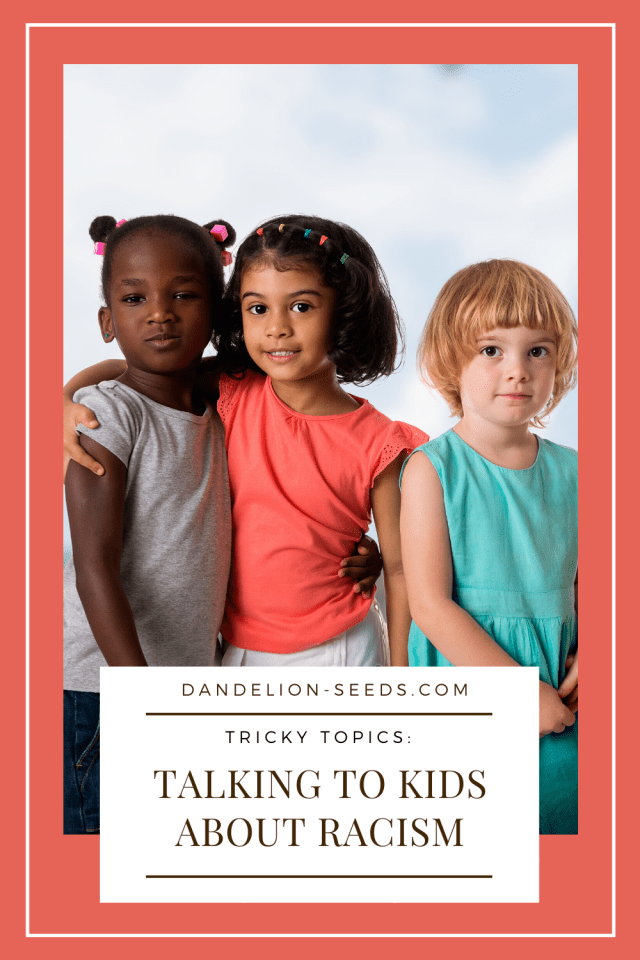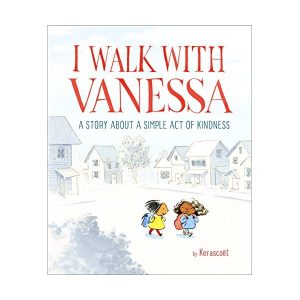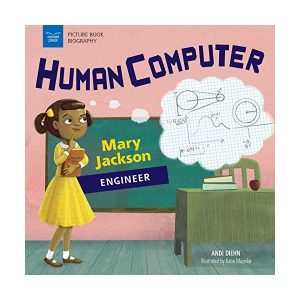
Sign in
Don't have an account with us? Sign up using the form below and get some free bonuses!

A few years ago, my then-almost-six-year-old daughter and I found ourselves unexpectedly discussing white privilege and racism while driving from North Carolina to Alabama. Rather, I drove and she "navigated" by telling me to turn left every 90 seconds or so. We'd still be driving in a big square if it were up to her.
As it turns out, my Google Maps app wasn't a whole lot more help than she was (and I give her more credit for trying). Even though I had the "highway" setting enabled, it insisted that I drive only on side roads. Given that I lack the ability to tell one Great Smokey Mountain from another, I had little choice but to continue down our slow, two-lane route.
Besides, we got to see some things we'd have otherwise missed had we been on the highway: the Cat Museum, for one, and a roadside store entirely dedicated to "Hot Boiled Peanuts." (We didn't stop.)
Along with those things, we also saw a whole lot of confederate flags. After seeing enough of flags to pique her interest, my child asked what they were for.
I could've simply responded that people were using them to decorate their houses. That would be true. However, this was an opportunity to talk about another one of life's "big issues." She's going to hear about the "big issues" of racism and white privilege at some point, regardless.


Using age-appropriate terms, I briefed her on the Civil War and what the two sides believed. I referenced one of her favorite picture books, I Walk With Vanessa, to help her connect the dots. (In the book, a little girl who's new to a school is bullied by a boy of a different race. Fortunately, it has a happy ending of inclusion and acceptance. More than anything, it's a children's book about the power of kindness. It has no words whatsoever; the "reader" can use the appropriate narrative for his or her child---and that's one of the reasons I recommend it.)
Going on, I reminded my daughter that some people still wrongly believe that skin color is related to how important they are. Wanting to leave her feeling hopeful about the future (as I am), I spoke to her about people like Dr. Martin Luther King, Jr., and others throughout our continued history, who've peacefully fought for equal rights.
That entire conversation lasted only a few minutes. I answered her questions. Then, days passed without further discussion about racism or white privilege.

We hadn't planned to spend any time in Alabama besides flying back home from one of its airports. However, our flight was cancelled due to weather, so we ended up with a few unexpectedly free hours in Montgomery, the state's capitol.
We parked near the first confederate White House and decided to walk the half mile to Dr. Martin Luther King, Jr.'s house (otherwise known as the Dexter Parsonage Museum), where we'd go inside and learn more about him and his important work.
Surprisingly, even though it was late afternoon on a beautiful day, the downtown Montgomery streets were completely empty. No one was outside. It was kind of weird.
We passed an alley, and out of seemingly nowhere, a black man who appeared to be homeless, appeared right behind us. The feeling of someone being so close, no matter who he was, initially startled me. I turned and nodded, "Hello." He replied warmly, "Hello."
Intuition is there for a reason. Trust it. In this case, however, my intuition told me we had absolutely nothing to fear (I've written before about how we've addressed homelessness). Besides, we were already there and so was he, so why not keep it positive? I realized my daughter was closely observing how I'd handle this stranger's

presence.
The man, who quickly proved to be kind and helpful, confirmed we were, indeed, walking the right direction towards our destination. He walked alongside us for about two blocks, making conversation and briefing us on this fascinating history of slavery in Montgomery. Then, as quickly as he'd appeared, he veered off. He offered in his most polite southern drawl, "Y'all be blessed."
I felt that we had been.
Because we live in a large and diverse city, we have opportunities like this on a regular basis. The timing of this one, however, felt poignant because of where we were, what we'd recently discussed, and where we were going.
Study and discuss the history of racism and white privilege at an age-appropriate level. Start young, while kids are still forming their opinions about the world. Read books that include people of color. Widen your social circle, if necessary. Point out what we need to do to stop racism and white privilege. And then, when the opportunity presents itself (as it undoubtedly will), let your response to others be your child's best teacher.
Most of all, let the conversations flow organically. They will come up quite naturally throughout our lives; we just need to be observant and brave enough to help our children understand the narrative that accompanies them. Our words matter. The stories we tell today help them form the impressions with which they grow up -- and their tolerance for how other people address them, too. Help them be change makers for the better.
Go there. Talk about it. Be the one who's willing to be uncomfortable (if you are). It's through discomfort that we grow. Be the one to normalize it as part of our children's consciousness. They're always paying attention.
Sarah R. Moore is an internationally published writer and the founder of Dandelion Seeds Positive Parenting. You can follow her on Facebook, Pinterest, and Instagram. She’s currently worldschooling her family. Her glass is half full.
As an Amazon associate, we earn from qualifying purchases. Your purchases help us support important charities.



I was driving home from the doctor with my five-year-old child. She was on day six of a 102-degree fever and all its accompanying crud. All she wanted was to get back home, as did I.
As we were driving along a busy two-lane road at about 35 miles per hour, I saw him. A boy who was about 10 years old stepped off the curb several cars in front of me and lay down in the street, directly in front of oncoming traffic. The car closest to him swerved out of the way. So did the one behind it. By the time I got there, which was a mere few seconds later, he'd popped up and sprinted to the other side of the street. His three friends--two boys his age and an older girl (who was maybe 14)--were carrying their backpacks home from school. They were laughing and seemed to be egging him on.
Oh, sh**, I thought.
Feeling my adrenaline kick in but being completely unsure what to do with a row of fast-moving cars behind mine, I continued to drive ahead for about half a mile while my heart raced with emotion. Worry. Anger. Strong worry. Strong anger. I judged him harshly, livid that he'd endangered so many lives, and especially his own. Some tragedies don't need to happen. How dare he?
Finally, some reason snapped into me. This is someone's kid. Mentally flashing to my own child and envisioning her older and, God forbid, making the same horrible choice, I suddenly and briefly loved this unknown boy as I do my own child. Somehow, love strongly overtook my anger and fear.
I had to help him.
As quickly and safely as I could, I drove back to where he was. This time when I saw him, he was darting back and forth across both lanes of traffic without lying down, having to sprint due to the the speed and frequency of the oncoming traffic from both directions. He was close to a corner so many of the drivers couldn't see him until they were nearly on top of him. His friends continued to stand at the side of the road, safely away on the sidewalk. They no longer looked impressed. They didn't look worried, either. If anything, they looked dismissive. Perhaps this is just the "thing" he does on the way home from school some days. Old news?
Well, kid, you're not going to die on my watch.
Seeing exactly where he was, I pulled up to a safe place on the side of the road where he was and rolled down my passenger-side window. Then, I proceeded to get it all wrong.
My heart still pounding fast enough to nearly send me into the nearby hospital, I yelled out to him like a banshee, "Stop it!" I held up my smartphone for him to see it (the weapon that is modern technology?) for some reason that is still unbeknownst to me. Perhaps I was subconsciously threatening to call the police; perhaps he'd think I was taking his photo. In reality, I just had Google Maps up from before any of the excitement started. My flustered brain couldn't figure out how to turn it off. I had no clue what I was doing.
He approached the car as I continued to yell something that, even to me, was largely unintelligible. My heart was in the right place, but I'm sure I looked like either a threat or a fool to him. Likely both. There was nothing in my outward demeanor that empathized, "I'm here because I care about you." He took a couple of steps closer, flashed a Cheshire cat-like smile at me and held it for a moment, then bolted off as fast as he could the opposite direction.
Not okay. This is backfiring. I'm trying to help, but he sees me as the enemy.
As soon as I safely could, I did a U-turn to go the direction he ran. Upon doing so, I unintentionally, but very luckily, pulled into a driveway that blocked his friends who were now walking my direction down the sidewalk. Feeling the need to engage their help, I rolled down my window.
I have to get this right. Even if these aren't my kids, I need to use everything I've ever read about gentle parenting and "I-statements"** instead of anything they'd perceive as accusatory. I can't scream at them or be like any of the other adults who may have punished, chastised, or shamed them for their behavior. This needs to be personal and loving.
All three of the kids--the boy's friends--clearly just wanted me to move on. I could see on their faces that they didn't want me there. They looked at me exactly as if I were just another adult about to lecture them. However, I managed to lock eyes with one of the boys. In a very shaky but surprisingly loud voice, I pleaded from the heart, "I am so worried about your friend! I am so, so worried!"
He looked puzzled. I'm sure my approach caught him off-guard. He might've been expecting me to do what I'd done to his friend across the street: effectively flip out on him.
I kept my eyes locked on his and repeated all my brain could muster, "I am so worried about him! I feel so scared when I see kids playing in such dangerous ways! Your friend could die! I don't want any child to die! My little girl is in the car with me, and I don't want her to see a boy die! I am so incredibly scared for him! I feel so, so afraid!" The truth--the core of every feeling I had in that moment--was gushing out of me like water. My eyes welled up with tears as I spoke. I hadn't planned a word of it. My heart was speaking to the boy.
With that, this boy's lip started to quiver. His friends started to chuckle, but this boy held my gaze. Much to my surprise, he blurted out, "I was doing it, too! It wasn't just him! We were playing chicken with the cars! He said it was fun, and it was. I stopped eventually, but I did it, too. It was me, too. I did it. I was playing chicken." He pointed to the older girl and added, "She said we should stop, but we didn't. We kept playing." And he cried, confessing through his tears.
Dear Lord. Please be here. I don't know what to do.
Stunned again, my shaky but now calmer voice said to him, still without breaking eye contact, "Thank you so much for stopping. Thank you so, so much. You made such a good choice to stop. You made the right choice. Thank you for stopping. You did the right thing. You really did the right thing." Apparently I repeat myself when my heart rate exceeds 200 bpm. He continued to cry hard, right there on the sidewalk. In hindsight, they seemed to be the cleansing tears of confession; the release he needed in that moment. He didn't need shaming; he needed an olive branch.
I looked at the older girl, who by rolling her eyes, was indicating to me that she wasn't particularly interested in our conversation. I caught her gaze on one of her eye rolls, though, and held it. To her, I said, "Thank you for telling the boys to stop. They need you. You have influence and you can make such a difference to them. Thank you so much for helping take care of these kids. These kids need you. Thank you so much."
Although it didn't look to me like she'd tried particularly hard to stop them, she had said something, at some point. It was enough for at least the confessing boy to remember it. She, too, looked surprised at my words, and for a fraction of a second, her face softened. Sincerely. She caught herself starting to smile at me and quickly stopped. Her eye rolls continued again in what seemed more like nervous reaction than indifference now, and honestly, who was I to blame her? She had a tougher-than-nails "look" that might invite most people who look like me, a Caucasian 40-something female, to assume the worst of her, regardless how unfair and undeserved that is. But I wanted her to know that I saw her. I saw her effort.
Unsure what else to do, I followed them the rest of the way to their apartment complex, including the boy playing chicken, who'd been watching our exchange from about a quarter of a block away on the other side of the street. They knew I was behind them. I wanted to ensure they'd get home safely. From time to time, they'd glance over their shoulders, looking somewhat annoyed that I was still there, driving two miles per hour as they hustled down the sidewalk as quickly as they could. Well, three of them looked annoyed. The boy who confessed looked genuinely relieved that I was still there.
I didn't get another chance to attempt to connect to the boy playing chicken. I didn't do anything to encourage him to do better; to behave differently tomorrow. If anything, I may have contributed to his game. I'm deeply sorry that I screwed up my chance to connect with him, however that might've looked in that moment. He couldn't have felt empathy from me because it's not what I demonstrated, regardless what I was feeling. I want him to know that not all of "us" who are older, who have different color skin, or are in some official or unofficial role of authority, are out to make his life miserable in whatever way he envisioned it.
I'm thankful for the opportunity to connect with the boy who needed to confess, and to whatever extent we did, the girl, too.
I don't share this story because of the part that went better than the rest, but instead, to share that my "default" in an emergency wasn't what it should have been. It wasn't what I'd have hoped or guessed it would be. I need to practice. We all need to actively practice compassion if we can ever hope that it might become our default. We don't always get a second chance.
Perhaps the boy playing chicken would've blown me off regardless, even if I'd done everything right. I think what would've been different, though, is that he'd have seen a stranger show him compassion. I can hope that it might've stuck with him, and that whether at age 10 or sometime later in his life, he'd have remembered that someone tried to connect. We've all needed that one person at some point in our lives, haven't we? Maybe he has a hundred loving people trying to connect to him every day and I simply caught him in an "off" moment. I just don't know. But I'm darn well going to keep practicing so that kindness and compassion become my default. Alienating a child isn't ever going to bring him closer.
Maybe the boy who confessed was already feeling uncomfortable about participating in the game of chicken. His nerves had to be in overdrive after lying down in a busy street. Maybe it was just dumb luck that he said what he did, and he would've confessed to anyone, in any circumstance. I doubt it, though. When we began our exchange, his outward expression was only that of defensiveness. I'm willing to wager that showing compassion rather than anger broke down a barrier and started the healing process. I can hope so, anyway.
In any case, my child and I drove home, then. For the rest of the day, including as her feverish head rested on her pillow while she drifted off to sleep that night, she kept repeating, "Why was that boy lying down in the road?" She's been asking ever since. The situation has been looping in her five-year-old mind as much as it has in mine.
I wish I had the right answer for her. I wish the world weren't like this. But my goodness, if we can't really connect and help kids feel emotionally safe in our presence, what can we do?
We can keep working on it. That's what we can do. We can practice in the moments when we don't need it to save up for the moments when we do. I'm darn well going to keep practicing so that kindness and compassion become my default. I promise to do that, with nothing but gratitude to the boy who showed me that I need to do better.
___________________________________________________
** Although "I-Messages" aren't the specific focus of this book, the concepts therein helped me with boundary setting and communication with children in general. I definitely still draw from it today, as I did in the scenario above. For the book that gave me the specific tools and ways to present "I-Messages" during the exchange with the boy who confessed, click here. I find the tools therein helpful not only for parenting, but for close relationships in general.
To see all the cooking, child-, and parenting-related items that have stood the test of time in my house, including my favorite books, click here. As an Amazon Associate, I earn from qualifying purchases.